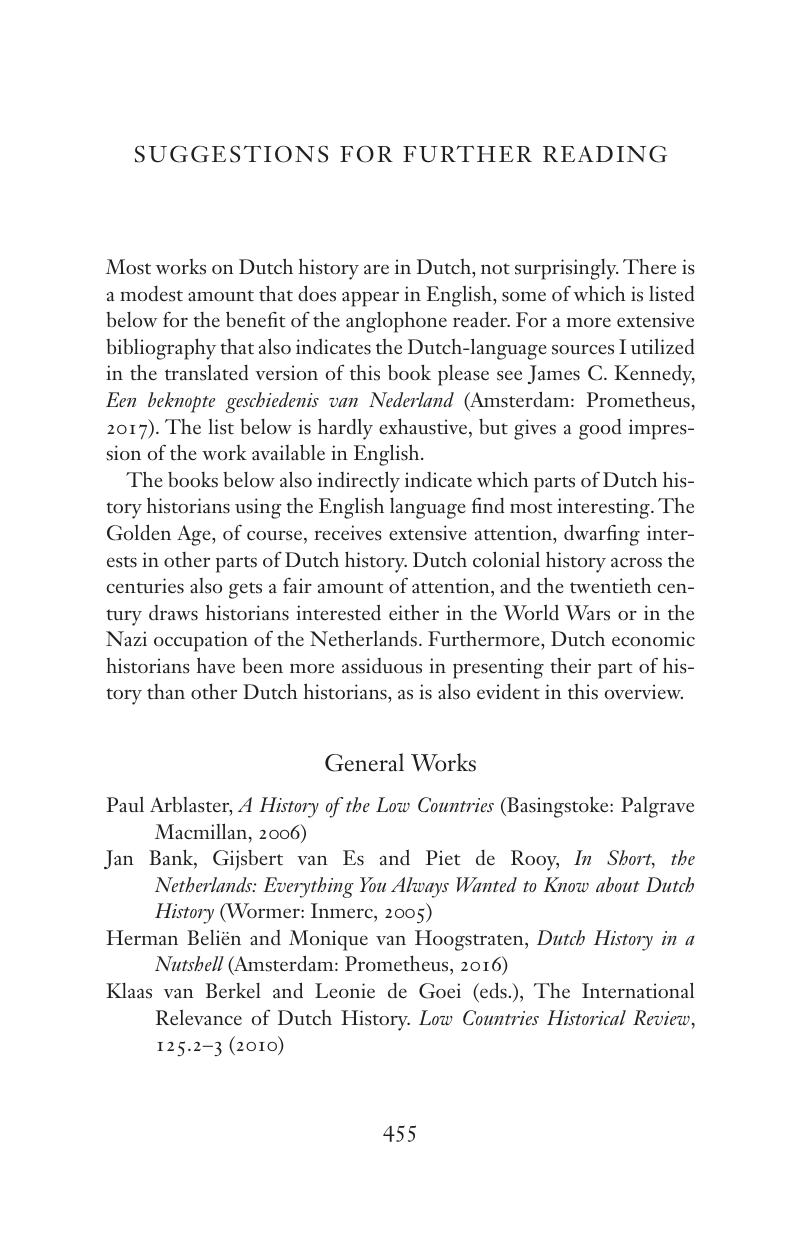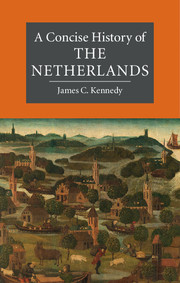Book contents
- A Concise History of the Netherlands
- Cambridge Concise Histories
- A Concise History of the Netherlands
- Copyright page
- Contents
- Figures
- Maps
- Acknowledgments
- Chronology of Events in Dutch History
- Introduction
- 1 From the Margins to the Mainstream
- 2 Rise of the Northern Netherlands, 1384–1588
- 3 A Young Republic’s Golden Age, 1588–1672
- 4 Diminishing Returns and New Hopes, 1672–1795
- 5 Building a Nation-State, 1795–1870
- 6 Progress and Crisis, 1870–1949
- 7 A Progressive Beacon to the World, 1949–2017
- Epilogue
- Suggestions for Further Reading
- Index
- References
Suggestions for Further Reading
Published online by Cambridge University Press: 22 July 2017
- A Concise History of the Netherlands
- Cambridge Concise Histories
- A Concise History of the Netherlands
- Copyright page
- Contents
- Figures
- Maps
- Acknowledgments
- Chronology of Events in Dutch History
- Introduction
- 1 From the Margins to the Mainstream
- 2 Rise of the Northern Netherlands, 1384–1588
- 3 A Young Republic’s Golden Age, 1588–1672
- 4 Diminishing Returns and New Hopes, 1672–1795
- 5 Building a Nation-State, 1795–1870
- 6 Progress and Crisis, 1870–1949
- 7 A Progressive Beacon to the World, 1949–2017
- Epilogue
- Suggestions for Further Reading
- Index
- References
Summary

- Type
- Chapter
- Information
- A Concise History of the Netherlands , pp. 455 - 470Publisher: Cambridge University PressPrint publication year: 2017

